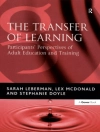The sociocultural turn in psychology treats psychological subjects, such as the mind and the self, as processes that are constituted, or ’made up, ’ within specific social and cultural practices. In other words, though one’s distinct psychology is anchored by an embodied, biological existence, sociocultural interactions are integral to the evolution of the person.
Only in the past two decades has the sociocultural turn truly established itself within disciplinary and professional psychology. Providing advanced students and practitioners with a definitive understanding of these theories, Suzanne R. Kirschner and Jack Martin, former presidents of the American Psychological Association’s Division of the Society for Theoretical and Philosophical Psychology, assemble a collection of essays that describes the discursive, hermeneutic, dialogical, and activity approaches of sociocultural psychology. Each contribution recognizes psychology as a human science and supports the individual’s potential for agency and freedom. At the same time, they differ in their understanding of a person’s psychological functioning and the best way to study it. Ultimately the sociocultural turn offers an alternative to overly biological or interiorized theories of the self, emphasizing instead the formation and transformation of our minds in relation to others and the world.
Innehållsförteckning
Acknowledgments
The Sociocultural Turn in Psychology: An Introduction and an Invitation
Suzanne R. Kirschner and Jack Martin
Part I: Discursive and Constructionist Approaches
1. Public Sources of the Personal Mind: Social Constructionism in Context
Rom Harré
2. Inside Our Lives Together: Neo-Wittgensteinian Constructionism
John Shotter
3. Beyond the Enlightenment: Relational Being
Kenneth J. Gergen
4. Sociocultural Means to Feminist Ends: Discursive and Constructionist Psychologies of Gender
Eva Magnusson and Jeanne Marecek
Part II: Hermeneutic Approaches
5. Hermeneutics and Sociocultural Perspectives in Psychology
Frank C. Richardson and Blaine J. Fowers
6. The Space of Selfhood: Culture, Narrative, Identity
Mark Freeman
7. Agentive Hermeneutics
Jeff Sugarman and Jack Martin
Part III: Dialogical Approaches
8. The Dialogical Self as a Minisociety
Hubert J. M. Hermans and João Salgado
9. Theorizing Cultural Psychology in Transnational Contexts
Sunil Bhatia
Part IV: Neo-Vygotskian Approaches
10. Cultural-Historical Activity Theory: Foundational Worldview, Major Principles, and the Relevance of Sociocultural Context
Anna Stetsenko and Igor M. Arievitch
11. Vygotsky and Context: Toward a Resolution of Theoretical Disputes
Michael Cole and Natalia Gajdamaschko
List of Contributors
Index
Om författaren
Suzanne R. Kirschner is associate professor of psychology at the College of the Holy Cross and author of The Religious and Romantic Origins of Psychoanalysis: Individuation and Integration in Post-Freudian Theory, as well as numerous articles on the interconnections between psychological theories and their sociocultural contexts. She is a fellow of the American Psychological Association.Jack Martin is Burnaby Mountain Endowed Professor of Psychology at Simon Fraser University and coauthor of Persons: Understanding Psychological Selfhood and Agency, Psychology and the Question of Agency, and The Psychology of Human Possibility and Constraint. His research interests are the philosophy and history of psychology, social developmental psychology, and educational psychology, with particular emphasis on the psychology of selfhood and personhood.












